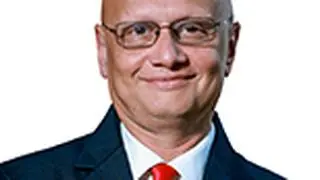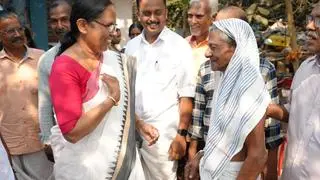\Indian professionals and workers will not get any direct concessions to ease their travel for work in Sri Lanka as part of the extended Free Trade Agreement (FTA) being negotiated between the two countries, Sri Lankan Minister for International Trade Malik Samarawickrama has said.
Sri Lanka will, however, allow some relaxation in visas and work permits for workers in certain identified sectors such as IT and health, in cases where investments flow from India, Samarawickrama told BusinessLine in an interview.
“We have said we cannot agree to Mode 4 (movement of natural persons). But under Mode 3, certain sectors, such as IT and health, will be allowed to invest and set up operations in Sri Lanka. Such investors can be allowed to get workers subject to some benchmarks such as minimum salary,” the Minister said on the sidelines on the World Export Development Forum 2017, organised by the International Trade Centre in Budapest.
The sectors where investments could be allowed are still being worked out with inputs from the industry.
India and Sri Lanka signed a free trade agreement in goods in 1998, which resulted in higher imports from Sri Lanka in the initial years, with India catching up later. The two are now extending the agreement by negotiating an Economic Technology Cooperation Agreement (ECTA) that would include services and investments.
“There is no doubt that Sri Lanka has benefited immensely from the FTA in goods with India. About 70 per cent of our exports to India happened after the FTA was signed based on duty-free access. From India’s point of view, it is only 7-8 per cent. We have to be happy with that,” Samarawickrama said.
India is keen to finalise the ECTA early from both economic as well as strategic point of view, as China too is negotiating an FTA with Sri Lanka.
Sri Lanka is hopeful that the ECTA will be signed by June next year as negotiations were going on “satisfactorily”.
“We want the ECTA to lead to Indians setting up industries in Sri Lanka and re-exporting to India. We want to go up the regional value chain. We want parts to be made in Sri Lanka and sent for assembly to India in sectors like rubber-based products and automotive parts,” the Minister said.
The non-tariff barriers faced by Sri Lankan exports to India in the form of varying quality standards could be sorted out through mutual recognition agreements, he added.
India’s exports to Sri Lanka in 2016-17 stood at $3.9 billion, nearly half of its exports in 2014-15 at $6.7 billion. Sri Lanka's exports to India in 2016-17 stood at $602 million.
(The writer is in Budapest at the invitation of the International Trade Centre)







Comments
Comments have to be in English, and in full sentences. They cannot be abusive or personal. Please abide by our community guidelines for posting your comments.
We have migrated to a new commenting platform. If you are already a registered user of TheHindu Businessline and logged in, you may continue to engage with our articles. If you do not have an account please register and login to post comments. Users can access their older comments by logging into their accounts on Vuukle.